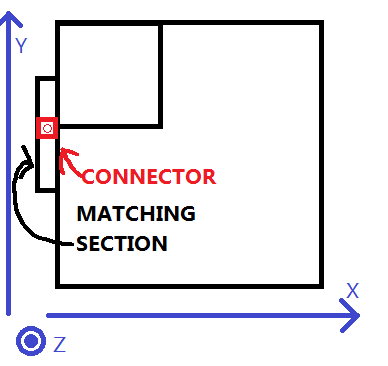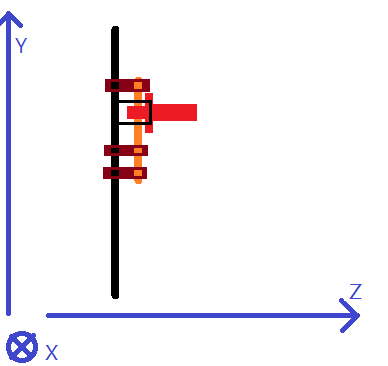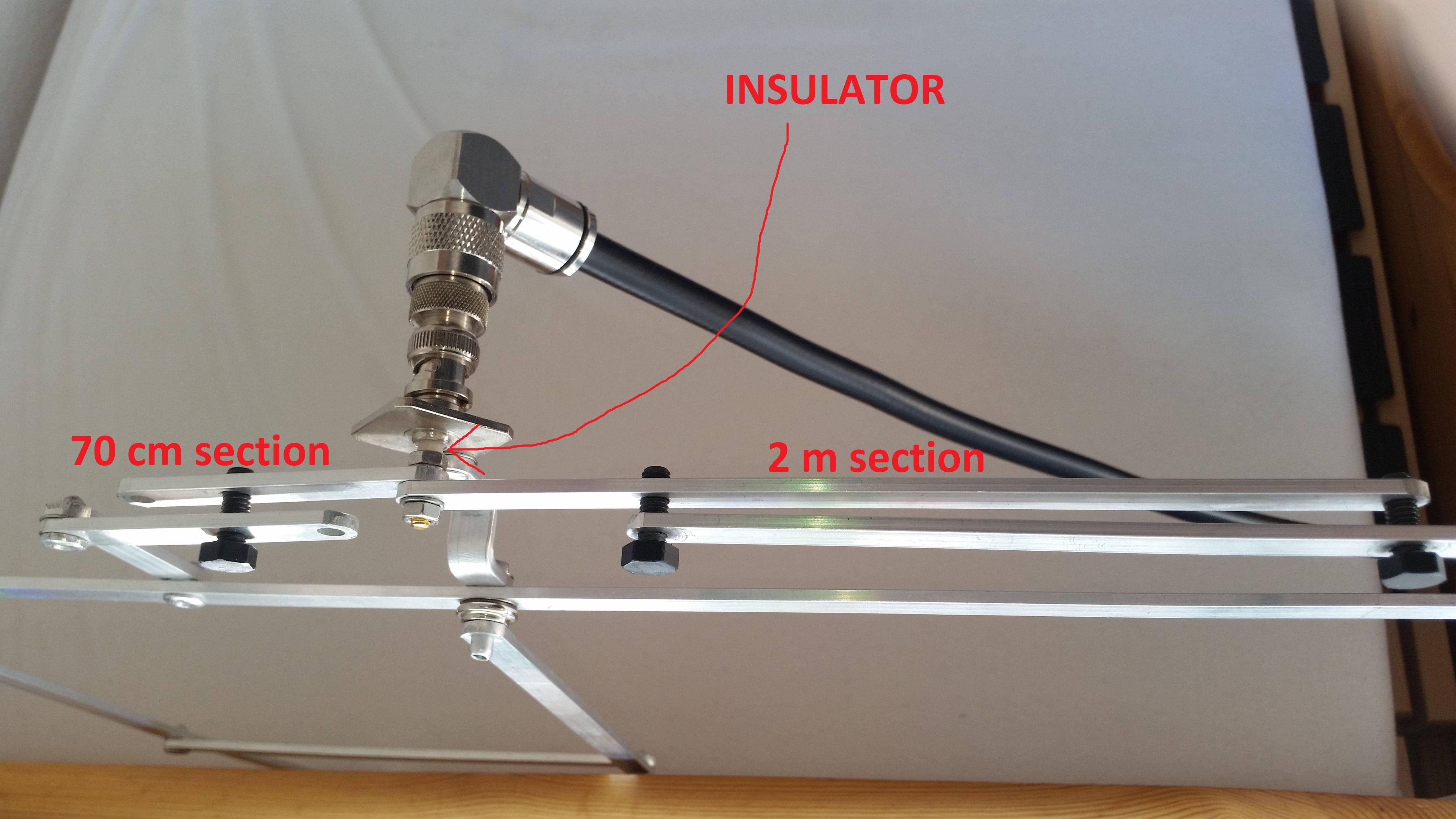I've recently obtained a Quad Loop antenna for 2 m and 70 cm that's fed through gamma match, as shown in the picture:
The shorter metal bars are connected to the hot side of the BNC, while the longer assembly is connected to the ground of the BNC. Screws are made of dielectric material.
Here's a photo of the whole antenna:
![Photo of the antenna in XY plane]]2
Here's drawing of the whole antenna. The connector and matching section is on top of the parallelogram part of the antenna and is on the left side.
On these (not to scale!)diagrams, the BNC connector in in red, the antenna assembly that connects to the connector's ground side is in black, the assembly that connects to the connector's hot side is in orange, the screws are in brown. The orange and black parts are not directly connected, it's just that I don't know how to draw good 3D shapes.
The instruction manual says that I'm supposed to adjust the distance between the two parts and then secure both parts with screws when correct distance has been determined.
So my question is: How do I adjust the distance using an SWR meter? More explicitly, how do I determine if I should increase or decrease the distance between the two components? Is there a rule of thumb, like the rule for short/long dipoles, for this case? How do I take into account two bands?
EDIT: Link to the manual was requested in comments, so here it is. Here's the manufacturer's webpage about the antenna, but it only provides specifications, such as mass, wind load, radiation angles and so on. Since the manual is on German only, here's a translation:
Assembly and adjustment
The attachment of the antenna is possible in all polarization modes on a smooth, non-conductive surface with the two suckers. The window pane offers the best HF position! A suspension at the corner (diamond shape) often brings good results. SWR setting: Unscrew the plastic isolator screws, change the plate spacing and turn the screw back in.
Description
The antenna is a full-wave loop (quad-loop), available as monoband antenna for 2m or 70cm, or as a duo antenna for both bands. The gain is about 1 dBD. The individual parts are connected via fatigue-free special joints. One of the connections is a metal push button so that the antenna can be very small. The SWR adjustment is easy to make with a plastic screw. The antennas are attached to the window pane with two oversized suckers; Depending on the suspension, operation is possible either with horizontal or with vertical polarization.
There are 3 versions of the antenna that I have: 2 m version, 70 cm version and the dual-band version. The sections marked as 70 cm and 2 m on the image are the sections that appear on the mono-band versions of the antenna. They are connected to the center pin of the BNC connector. The big frame is connected to the ground of the BNC.



